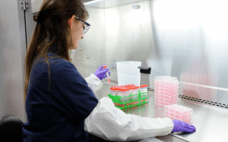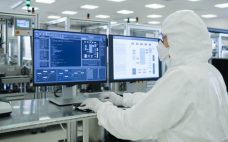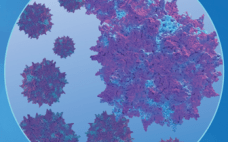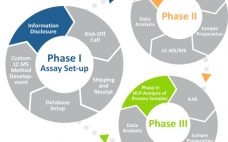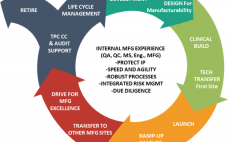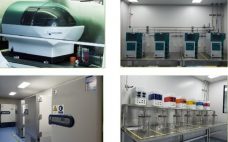This webcast features: RenĂ© Gantier, PhD, Director of Technology, Gene Therapy, Repligen The current manufacturing processes for viral vectors for gene therapy, which we can define as Gene Therapy Manufacturing 1.0 (e.g., adherent cell culture and transient expression from plasmid transfection), are not productive enough to meet the future demand considering the quickly increasing number of approved gene therapies and clinical trials. A transition is therefore ongoing to implement more productive and scalable processes, leading to Gene Therapy Manufacturing 2.0 using…
Webinars
Innovative Closed Process CAR-T Cell Therapy Platform to Streamline Approach for Manufacturing with Great Predictability
This webcast features: Tatiana Golovina, Senior Director, Cell Therapy Process Development, WuXi Advanced Technologies For many years, the primary forms of cancer treatment have been chemotherapy, radiation, and surgery. An amazing breakthrough known as chimeric antigen receptor (CAR) T-cell therapy is being studied in the treatment of various types of cancer, including acute and chronic lymphoblastic leukemia, non-Hodgkin lymphoma, myeloma, and solid tumors. Developing innovative advanced therapies is one of our greatest opportunities to dramatically improve patients’ lives. WuXi Advanced…
Assessing Viral Clearance in Early Phase Process Development
This webcast features: William H. Rushton, Process Chromatography Support Scientist, Bio-Rad Laboratories Viral clearance studies are part of a multifaceted approach to ensure the safety of biopharmaceutical products. In order to prevent costly changes to a manufacturing process, it is important to assess each operation unit for its efficiency on the removal or inactivation of adventitious agents early on during downstream process development. A design of experiments (DOE) approach was utilized in this case study to investigate the effect of…
Accelerating Vaccine Development By Innovative Purification Solutions and State of the Art Quality Testing
This webcast features: Sirat Sikka and Florian Durst, Field Application Scientists (Purification and Pharma Analytics), Thermo Fisher Scientific The emergence of new diseases and infections has entailed the need for rapid and efficient development of safe and efficacious vaccines. Additionally, no effective vaccines currently exist for long-known pandemic diseases such as HIV or malaria. To address the challenges the vaccine industry faces, new vaccine modalities such as viral vectors, recombinant protein subunits, and nucleic acids are being researched and developed,…
World-Class AAV Vector Suspension Platform to Accelerate Commercialization to Market with Greater Predictability
This webcast features: Juan Lagos and Steve Tottey, Associate Directors of Upstream and Downstream Process Development, WuXi Advanced Therapies Developing innovative advanced therapies is one of our greatest opportunities to dramatically improve patients’ lives. WuXi Advanced Therapies launched a new world-class adenoassociated virus (AAV) vector suspension platform that complements integrated capabilities enabling cell and gene therapies to be developed, manufactured, and released faster and with greater predictability globally. In this webinar, we will discuss our recent technical advancement on efficient…
Identification of Host Cell Protein (HCP) Impurities using Antibody Affinity Extraction and Mass Spectrometry Approach
This webcast features: Eric Bishop, Vice President of Research & Development, Cygnus Technologies A well-developed, broadly reactive, and qualified HCP ELISA remains a gold standard method effectively used during the purification process to ensure removal of HCP and to demonstrate process consistency and final drug substance purity. Unfortunately, the ELISA does not inform which HCPs are present or to which HCPs the assay reacts. Mass Spectrometry (MS) is a powerful tool for identifying those HCPs that persist through downstream purification…
Assembly, Labeling, and Packaging Trends: Next Decade’s Sterile Finished Goods Solutions
This webcast features: Thomas Gabriel, Director, Strategy and Business Development, FUJIFILM Diosynth Biotechnologies Learn new trends in packaging, labeling, and distribution of finished goods and supporting technology platforms. At this event, there will be a presentation and dialogue regarding: patient convenience: trends, approaches and demands for future treatments medical device delivery systems of the next decade digitalization’s improvements to patient quality of life and medicinal ease of use manufacturing and supply chain networks of the future. Watch the recorded webcast…
Mixed-Mode Chromatography Resins​ for Biomolecule Purification
This webcast features: Dr. Xuemei He, R&D Chromatography Media Chemistry Manager, Bio-Rad Laboratories Mixed-mode chromatography has emerged as a viable purification method for biomolecules that are otherwise difficult to purify using traditional chromatography platforms and other established means. Scientists are gaining an increased understanding of mixed-mode mechanisms and how these interactions impact selectivity. The industry is becoming more adept at including mixed-mode steps in production processes while also working to address robustness, platform fit, and productivity. This webinar will examine…
Robust Stable Line Platform for Biologics Development
This webcast features: Dr. Sean Liour, Vice President for Project Management, GenScript ProBio A cell line platform can provide the best solution for the biopharmaceutical target. This webinar explains how to develop a robust stable line platform for CMC projects. GenScript’s biologics platform can provide one-stop service of CMC for the biopharmaceutical target. Watch the recorded webcast now.
Cryogenic Temperatures and Cell Viability
This webcast features:Â Dr. Peter Kilbride and Dr. Julie Meneghel, Senior Research Scientist and Cryobiologist, GE Healthcare Life Science In this webinar, we will address fundamentals of cryobiology to (1) understand why a cryopreservation protocol is needed, (2) see what happens biologically to cells while cooling, and (3) allow attendees to design an optimized protocol for their cell type and cryopreservation configuration (e.g., sample size). We will cover the importance of applying controlled-rate cooling and how to best tune it to…


